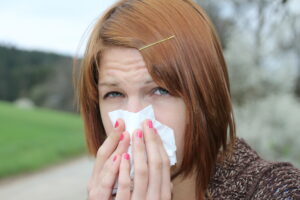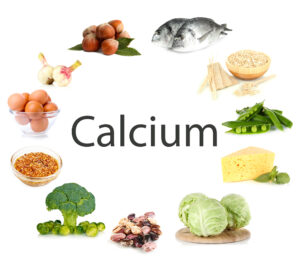 MSM is a natural mineral made of sulfur that has been shown in studies to relieve arthritis, headaches, back pain, and also contribute to stronger hair and nails.
MSM is a natural mineral made of sulfur that has been shown in studies to relieve arthritis, headaches, back pain, and also contribute to stronger hair and nails.
MSM is known as “Factor N”, for returning cells to normal.
A recent study from the Genesis Center for Integrative Medicine in Graham, Washington has found yet another benefit of MSM — it’s effectiveness for seasonal allergies and hay fever.
MSM sulfur is a white, odorless, water-soluble element found in nature and in foods such as milk, fruits, vegetables, seafood and meat. It is especially high in eggs, onions, garlic, asparagus and broccoli. When food is heated, washed, frozen or processed, it becomes depleted of its natural MSM stores — making supplementation beneficial.
Seasonal allergies affect more than 23 million Americans each year. Symptoms can include sneezing, watery eyes, runny nose, congestion, coughing, itchy throat and fatigue. Side effects of antihistamines include drowsiness, and decongestants may result in insomnia or irritability.
The goal of the MSM study was to evaluate whether a natural mineral can reduce allergy symptoms and to determine if it has any possible side effects.
The study was published in the Journal of Alternative and Complementary Medicine. Fifty-five patients with seasonal allergies were given MSM at 2,600 milligrams per day. The MSM use resulted in significantly reducing upper and total respiratory symptoms within 7 days.
Lower respiratory symptoms were substantially improved by the third week. Few side effects were associated with the use of MSM and no patients dropped out of the study from any adverse reactions. In addition, by day 14 the energy levels of participants had increased considerably.
The researchers concluded that MSM supplementation of 2,600 mg/day for 30 days is an effective and “side-effect free” remedy in the reduction of seasonal allergy symptoms. An unforeseen and valuable benefit of MSM was a significant increase in energy. For this reason, it’s best to take MSM early in the day rather than in the afternoon or evening too close to bedtime.
This health news is provided by Nutrition Breakthroughs. Since 2001 Nutrition Breakthroughs has provided natural health articles and effective natural remedies. Their mission is to provide nutritional supplements that get results and help people to avoid drugs and their side effects.
Nutrition Breakthroughs makes Joints and More, which contains pure organic MSM for allergy and asthma relief, arthritis and headache relief, increased energy, and stronger hair and nails. For more information, visit the Joints and More page.
Nutrition Breakthroughs also makes Sleep Minerals II, the original calcium and magnesium based sleep remedy. It’s been shown effective for sleeplessness and insomnia, as well as for restless leg syndrome, bone strength, menopause insomnia and teenage insomnia. For more information, visit the Sleep Minerals II page.











